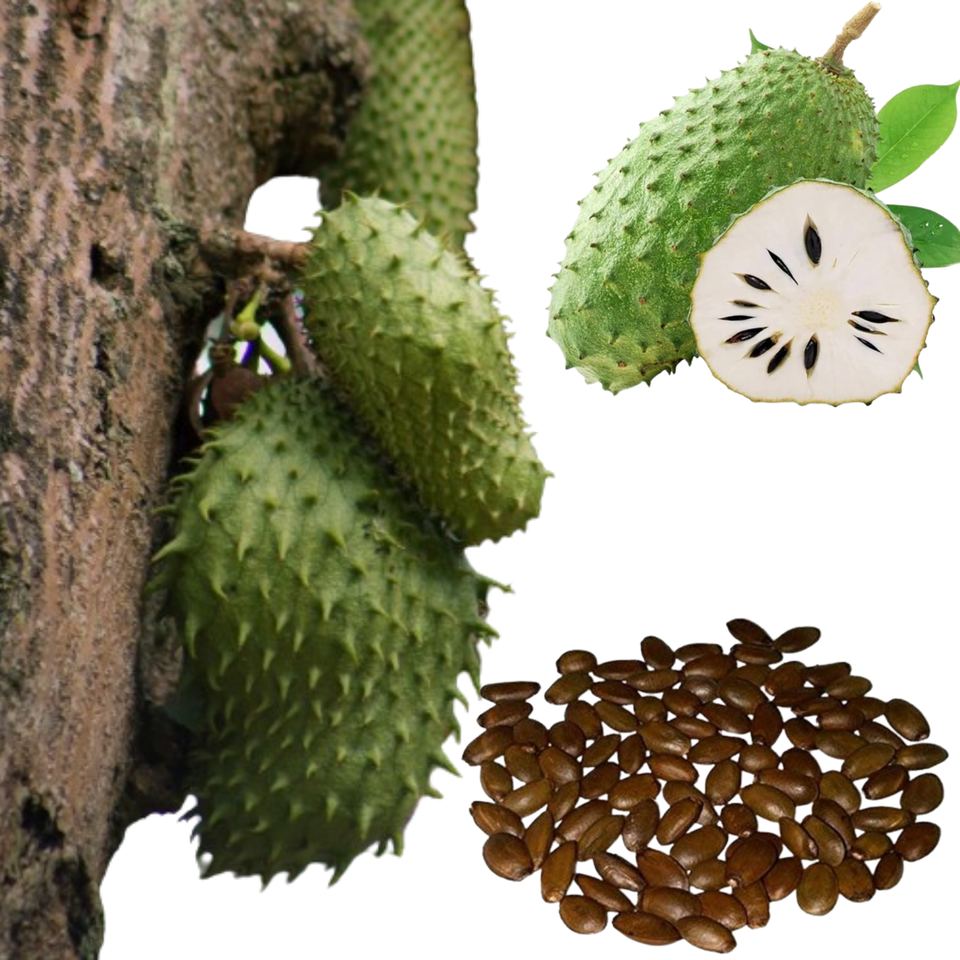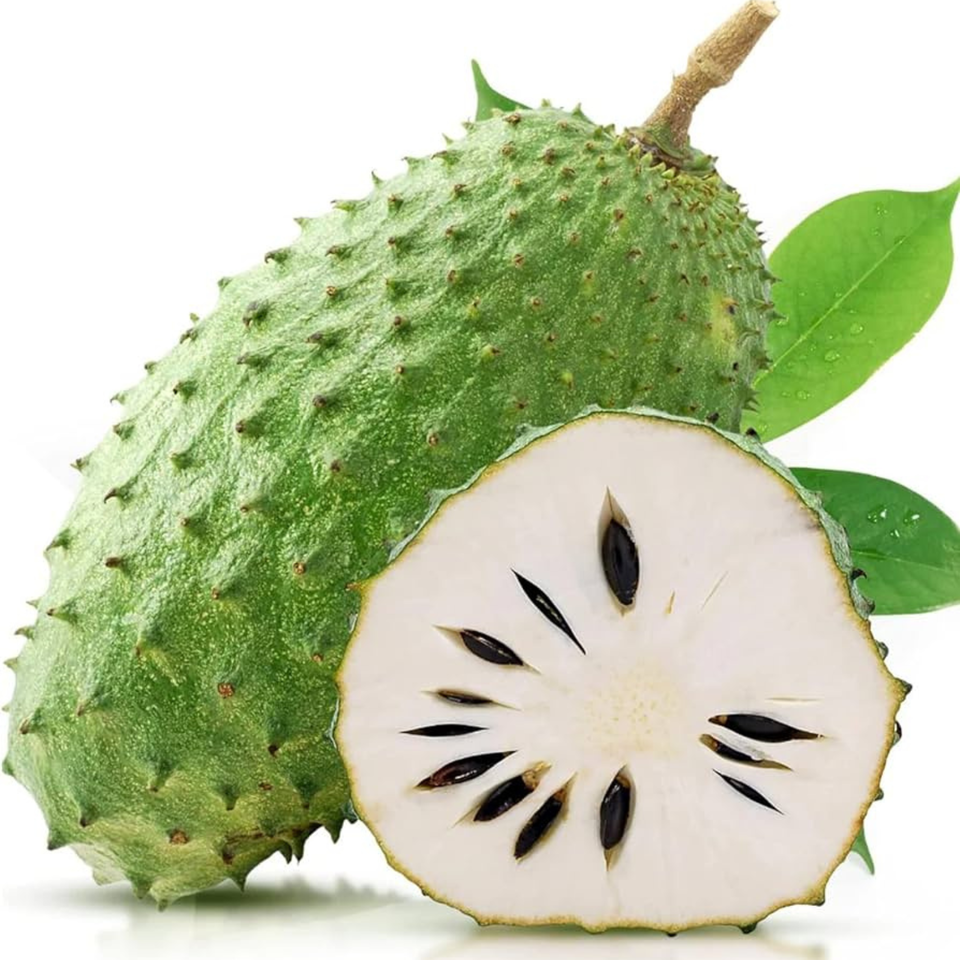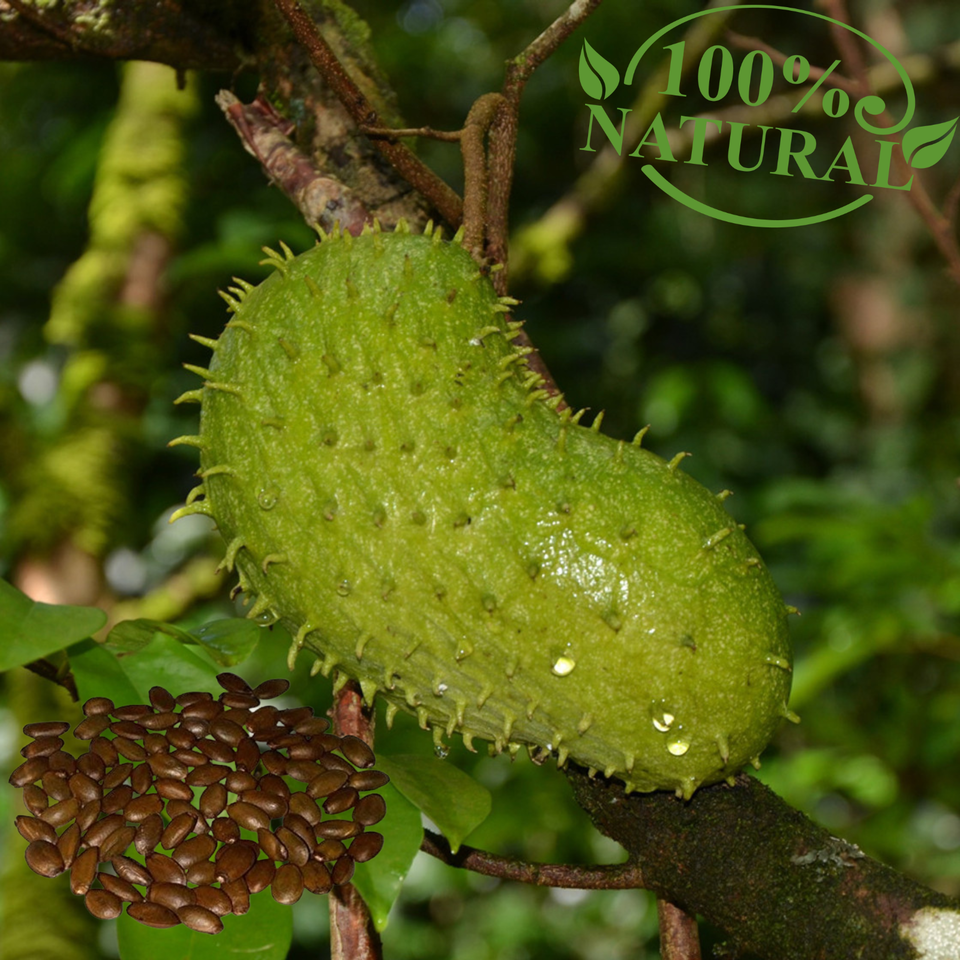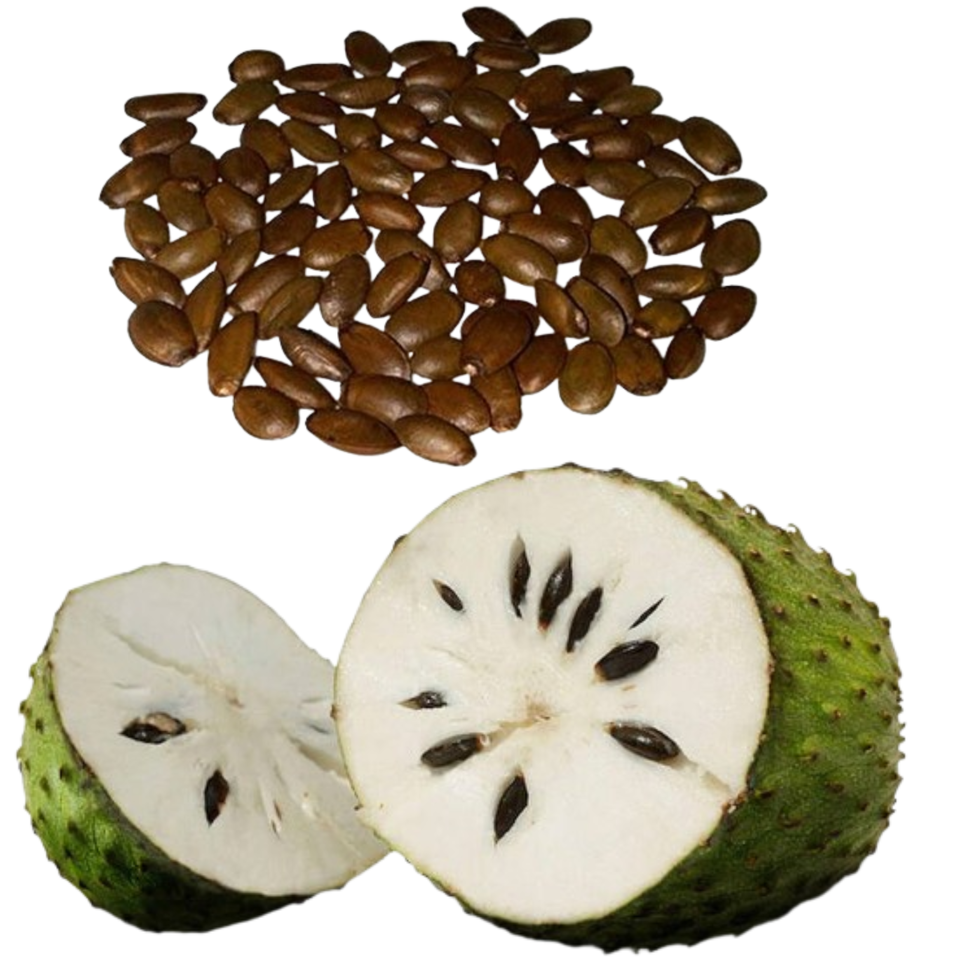Senci Green Garden
Soursop Annona Seed (Annona muricata) Fruit Muricata Organic fresh
Soursop Annona Seed (Annona muricata) Fruit Muricata Organic fresh
Couldn't load pickup availability
Soursop Annona Seed (Annona muricata)
100% Fresh Seesds NON GMO Organic
Annona muricata, commonly known as soursop, graviola, guanabana, or Brazilian pawpaw, is a tropical fruit-bearing tree of the family Annonaceae. Native to the tropical regions of the Americas and the Caribbean, it is widely cultivated for its edible fruit, which is appreciated for its unique flavor and potential health benefits.
Description:
Annona muricata typically grows to a height of 8 to 10 meters (26 to 33 feet).
It has a broad, spreading canopy with glossy, dark green leaves.
Leaves: The leaves are evergreen, oblong, and measure between 6 to 20 centimeters (2.4 to 7.9 inches) in length.
They have a leathery texture and emit a strong aroma when crushed.
Flowers: The flowers are large, solitary, and fragrant, with three greenish-yellow outer petals and three smaller inner petals.
They are produced on the branches and trunk of the tree.
Fruit Appearance: The fruit is large, heart-shaped, and covered with a spiky, green skin.
It can weigh up to 6.8 kilograms (15 pounds).
Flesh: The interior is white, juicy, and fibrous, containing numerous inedible black seeds.
The flesh has a sweet, tangy flavor that is often described as a combination of strawberry and pineapple, with hints of citrus and coconut.
Cultivation:
Climate: Soursop thrives in warm, humid tropical climates and cannot tolerate frost.
It requires well-drained soil and can grow in both acidic and alkaline conditions.
Propagation:
Typically propagated from seeds, although grafting and cuttings can also be used.
Growing Season:
The tree produces fruit year-round in suitable climates, with peak harvest times varying by region.
Uses:
Culinary: The fruit is eaten fresh or used in beverages, smoothies, desserts, and ice creams. It is also used to make juices, candies, and jams.
Medicinal: In traditional medicine, various parts of the tree (fruit, leaves, seeds, and bark) are used to treat ailments such as arthritis, diarrhea, fever, and respiratory conditions.
The leaves and seeds are believed to have antimicrobial and anti-parasitic properties.
Health Benefits:
Nutritional Profile: Soursop is rich in vitamins C and B, potassium, magnesium, and dietary fiber. It contains beneficial compounds like acetogenins, alkaloids, and flavonoids.
Potential Benefits: Studies suggest that soursop may have anti-inflammatory, antioxidant, and anticancer properties, although more research is needed to confirm these effects.
Cautions:
Seeds: The seeds contain annonacin, a neurotoxin that may contribute to the development of Parkinson's disease if consumed in large quantities.
It is advisable to avoid consuming the seeds.
Pregnancy and Breastfeeding:
Pregnant and breastfeeding women should consult a healthcare provider before consuming soursop, as its safety in these conditions is not well-established.
Cultural Significance:
Traditional Medicine:
Widely used in various traditional medicinal systems in Africa, South America, and Southeast Asia for its potential health benefits.
Symbolism: In some cultures, the tree and its fruit are associated with health and vitality.
Conclusion: Annona muricata is a versatile and valuable plant known for its delicious fruit and potential health benefits. While it is enjoyed worldwide in various culinary applications, it also holds a significant place in traditional medicine. However, caution should be exercised regarding the seeds and their potential neurotoxic effects.
Share








